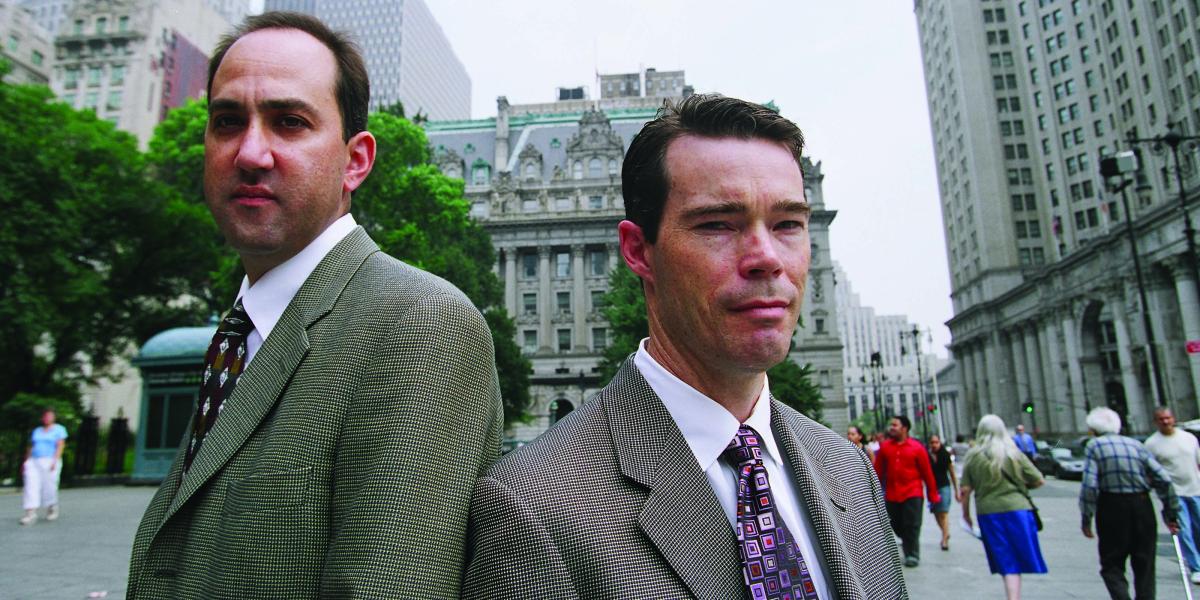Cutting The Flow of Guns to Criminals
Though gun violence peaked in American cities in the early 1990s, firearms are still used in more than 30 homicides per day in the U.S.
One major challenge is how to stanch the flow of guns to criminals. Researchers from the School's Center for Gun Policy and Research have recently zeroed in on illegal sales by licensed dealers (the dominant means of diverting guns into illegal markets). These sales include unrecorded, "off the books" transactions and "straw purchases" in which a person unable to pass a federal background check relies on another individual for the purchase.
Daniel Webster, MPH, ScD '91, Center co-director, wants to increase the accountability of gun dealers. A single store can have powerful consequences, as documented in a September study published in the Journal of Urban Health by Webster, Center co-director Jon Vernick, and colleagues. In Milwaukee in the late 1990s, one store was responsible for more than half the guns recovered from criminals in that city. When it stopped selling the cheap, easily concealable handguns known as "Saturday Night Specials" in 1999, there was a 44 percent reduction in new guns recovered in Milwaukee from criminals who were not the legal buyers.
In a separate study, Webster and Vernick, JD, MPH '94 (both associate professors of Health Policy and Management at the School), showed that undercover sting operations and lawsuits against gun dealers in Chicago abruptly dropped the flow of new guns to criminals by 46 percent. The same methods in Detroit, however, produced a gradual reduction. In Gary, Indiana (the third city in the study), there was no significant change. Webster and Vernick theorize that Chicago was most successful because it "stung" more dealers, garnered more publicity and pursued criminal indictments and prosecutions against gun dealers in addition to filing civil lawsuits. (Webster and Vernick's latest research shows evidence that comprehensive laws governing gun-dealer oversight and regular compliance inspections of gun dealers also deter illegal gun sales.)
Webster and Vernick's research captured the attention of Michael R. Bloomberg, New York City mayor (and namesake of the School), who has made reducing gun violence a priority in his administration's second term. "I've been in this field for 16, 17 years, and I've seen few politicians with the guts and intellect to step up and take this issue head on," says Webster. "Many politicians, frankly, are not that knowledgeable about the issue. They're quivering in their boots about the NRA [National Rifle Association] and not always intent on doing what's necessary to really stem the flow of guns to criminals."
In April, Webster was invited to New York's Gracie Mansion to brief 15 mayors attending a summit on illegal guns. The mayors, led by Mayor Bloomberg and Boston Mayor Thomas Menino, shared strategies for reducing gun trafficking and illegal guns in their cities. "My main message to them was the firm conviction that this is a problem you can do something about," says Webster. "It simply takes leaders with the right strategies and the conviction to carry them out."
Webster and Vernick continue to advise New York City's Criminal Justice Coordinator's Office as well as other cities on strategies and policies (such as legal compliance inspections, undercover stings and lawsuits against irresponsible gun dealers) for reducing the flow of illegal guns.
"It's very exciting," says Webster. "Gun policy had become less of a priority in recent years, particularly at the federal level, and a lot of people were not being very optimistic that we could make progress on the issue. Mayor Bloomberg and the other mayors have revived it with real passion and creativity. We want to take advantage of that and help this process along."
